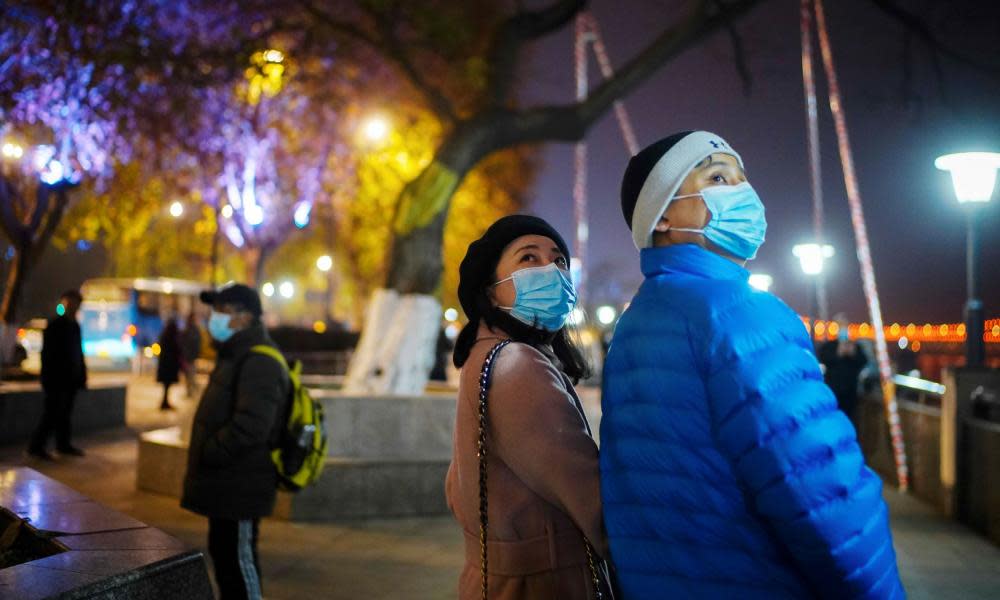Liveblogging the pandemic: 'The heroes of our blog are the readers'

In February this year, when I was offered the job of liveblogger and reporter on the Guardian’s foreign desk in Australia, my boss told me to read up about the new coronavirus. “It looks like you’ll probably be doing a bit of that,” she said.
Nearly ten months after boarding the flight from Beirut, where I was living at the time, to Sydney, I have liveblogged the pandemic for eight hours a day, five days a week.
Usually, a blog’s engines lie cool, ready to be fired up in response to a breaking and developing global news story. It is rare for a blog to last for more than a few days without a break. But our rolling live coverage of the global coronavirus pandemic has continued for almost a year uninterrupted – by Christmas Eve, it will have run 24 hours a day, for 340 days.
Related: Writing a live blog: 'You're frantically keeping the plates spinning'
The coronavirus blog is a perpetual relay. Every morning, as my colleagues in London wrap up their shifts, I launch the new blog and we make the switch (think: swapping the Fabergé egg for the hologram in Ocean’s Twelve, but set at a desk laden with mugs containing various amounts of tea forgotten as the latest news breaks). At the end of the day my computer pings with a friendly message from that day’s designated blogger in London, where it is early morning.
While I was packing my suitcases in Lebanon, my colleague Alison Rourke was keeping readers up to date on the very early developments of the virus. At the time, she says, “The world was focused almost entirely on China.”
There were hundreds of cases, not tens of millions, and fewer than 50 deaths.
“We relied heavily on the Twitter feeds of state-run Chinese media to get a sense of what was going on, as correspondents and journalists were unable to travel to hardest-hit Wuhan,” she says.
“Streets in the city of 11 million, where the virus emerged, were empty. People had vanished. At the end of January, the blog published the first videos of residents on high-rise balconies chanting “Wuhan ‘jiāyóu”. Translated literally it means, “add oil” – in other words, “keep up the fight”.
By the time I took the reins in early March, the virus had reached 79 countries. Deaths stood at 3,100, cases at 90,000. The World Health Organization was warning of global shortages of personal protective equipment. In Tehran, nurses and doctors danced in full PPE in an effort to keep up morale, as medical workers had done in Wuhan a month earlier.
There is a scene in the film LA Confidential that plays in the room in my mind where the pandemic is stored. The corrupt district attorney, Ellis Loew, says of the death of a corrupt policeman, “Maybe he died a hero.” LAPD cop Ed Exley, the film’s protagonist, smiles.
“You want to tell me what you’re smiling about?” asks the police chief.
“A hero,” Exley responds. “In a situation like this, you’re going to need more than one.”
The many heroes of our liveblog are the readers, who write in to let us know how the virus is affecting their countries, send encouragement or – as a purely hypothetical example – let a blogger know that she has written the word “pubic” when she probably meant “public”.
Readers also shared their experiences with us – of volunteering for vaccine trials, of being separated from loved ones, and of mourning. The connection with Guardian readers is one of the chief privileges of this job.
Then, there is the experience of being on the blog when the president of the most powerful country in the world – and the one with the highest cases and deaths – announces that he has tested positive.
When Trump made the announcement on Twitter on 2 October, I began blogging while updating our story with what we knew so far. Because we are working from home, I was fielding phone calls and G-chats – rather than listening to the news and shouts from across the room – while looking for any information possible. As always, it is helpful to not think of the millions of people – my eagle-eyed copy editor of a mother in Cape Town included – waiting to read every post.
At the time, the Australian state of Victoria was under one of the longest, strictest lockdowns in the world. In neighbouring New South Wales, life felt almost normal again.
A few months later, the US would record 3,000 deaths in one day – more than three times the number of people who have died in Australia over the course of the pandemic so far.
I look forward to – hopefully – reporting the good news in next year’s blog of people in developing countries gaining access to vaccines, of family members living in different countries reunited, of healthcare workers finally given the chance to rest. It may be many months until we are publishing those posts, or signing off for the last time. Until then, we’ll be here.
Throughout 2020, Guardian journalists have worked round the clock to dig out the truth about the pandemic. Because good journalism can help save lives. Support independent media. Support the Guardian.

 Yahoo Movies
Yahoo Movies 
